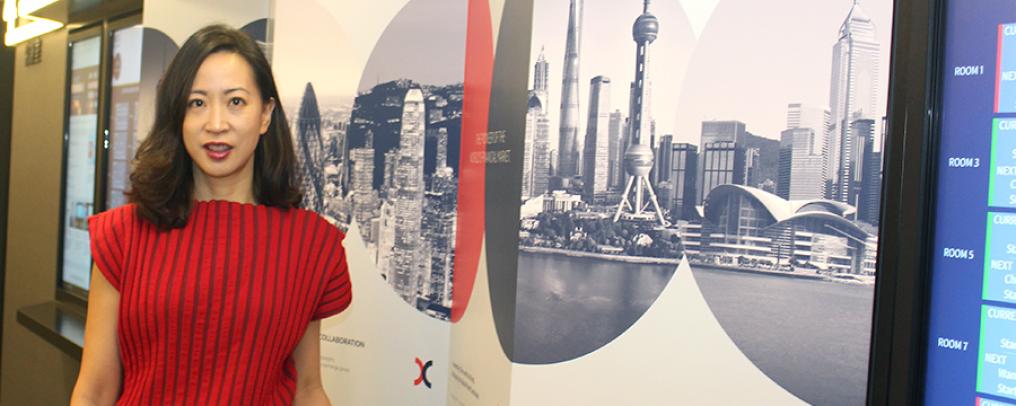
Inside information disclosure in Hong Kong and the Mainland – A comparison of the A+H share information disclosure requirements
PH Chik, Solicitor and Legal Adviser to the Mainland China Technical Consultation Panel of The Hong Kong Institute of Chartered Secretaries (the Institute), launches a two-part article in CSj looking at the major similarities and differences between the inside information and material information disclosure law and regulations in Hong Kong and the Mainland.
It has been more than seven years since disclosure of inside information under Part XIVA of the Securities and Futures Ordinance (SFO) became a statutory obligation for companies listed in Hong Kong in 2013. As in Hong Kong, information disclosure obligation of listed issuers in the Mainland has statutory backing under the People’s Republic of China (PRC) Securities Law. Companies with a dual listing in Hong Kong and the Mainland (A+H listed companies) have to comply with both the Hong Kong and the Mainland statutory disclosure requirements and the applicable rules of the relevant stock exchanges (referred to as the ‘Hong Kong rules’ and ‘the Mainland rules’, respectively). This article gives an updated comparison of the major similarities and differences between the Hong Kong rules and the Mainland rules and discusses some practical issues that A+H listed companies may encounter on information disclosure.
References to the PRC Securities Law in this article are to the revised PRC Securities Law as revised and approved by the Standing Committee of the National People’s Congress on 28 December 2019, which became effective on 1 March 2020.
1. Major events and inside information
Inside information (Hong Kong)
Under the SFO, ‘inside information’, in relation to a listed corporation, means specific information that is about:
- a corporation
- a shareholder or officer of the corporation, and/or
- the listed securities of the corporation or their derivatives.
This information is not generally known to the persons who are accustomed, or would be likely, to deal in the listed securities of the corporation, but would if generally known to them be likely to materially affect the price of the listed securities (Section 307A, SFO).
Examples of possible inside information have been provided by the Securities and Futures Commission (SFC) for guidance in paragraph 35 of the SFC’s Guidelines on Disclosure of Inside Information (SFC’s Disclosure Guidelines), but there are no defined ‘major events’ as in the Mainland rules (see the section below, ‘Major events and inside information (the Mainland)’.
There are several distinctive Hong Kong elements.
- Specific information: a transaction which is only contemplated or under negotiation can be ‘specific’ information and, subject to the safe harbour provisions, may become discloseable. ‘Specific’ information means information which is capable of being identified, defined and unequivocally expressed, although all particulars or details are not known. For example, information relating to a decision to conduct a private placement of shares is specific information without deciding on precise information such as the placing price, number of shares to be placed etc.
- Not generally known to the market: the Hong Kong rules require that the information is not generally known to those who are accustomed or would be likely to deal in the listed securities. The rules recognise that the same type of information may have different impacts on companies with different types of investors (for example, speculative investors as opposed to long-term investors) and therefore does not define knowledge with reference to knowledge of ordinary or general investors (Paragraph 18, SFC’s Disclosure Guidelines and pages 237-8, Insider Dealing Report of Public International Investments Ltd).
- Material effect on the price: materiality is to be judged objectively by considering whether the information would influence an investor (that is, a person who is accustomed or would be likely to deal in the company’s securities) in deciding whether or not to buy or sell the securities of the issuer (Paragraph 26, SFC’s Disclosure Guidelines). The test is a hypothetical one to be applied at the time when the company, through its officers, has knowledge of the inside information (Paragraph 27, SFC’s Disclosure Guidelines). No fixed thresholds of price movements or quantitative criteria have been provided under the Hong Kong rules (Paragraph 28, SFC’s Disclosure Guidelines).
- Determination of inside information: this is determined by considering whether a reasonable person, acting as an officer of the listed issuer, would consider the information as inside information based on his/her knowledge of all relevant facts and circumstances at the time (Section 307B(2)(b), SFO and Paragraph 52, SFC’s Disclosure Guidelines). In this regard, good faith belief of the directors, which is not based on an objective and reasonable assessment of all relevant matters, that the information is not inside information is not an excuse for non-disclosure or delayed disclosure (Paragraph 74, Consultation Conclusions on the Proposed Statutory Codification of Certain Requirements to Disclose Price Sensitive Information by Listed Corporations, by the Financial Services and the Treasury Bureau).
- Guidance on materiality: in determining whether a material effect is likely to occur, the SFC has provided the following guidance.
The actual magnitude of price movement once the information is made public is by no means a conclusive indication of its materiality (Paragraph 29, SFC’s Disclosure Guidelines).
The following factors should be considered in determining ‘materiality’, including:
- the anticipated magnitude of the event in the context of the totality of the listed issuer’s activity
- the relevance of the information to the price of the listed securities
- the reliability of the source of information, and
- market variables affecting the price of the securities, such as prices, liquidity, volatilities and so on (Paragraph 28, SFC’s Disclosure Guidelines).
Major events and inside information (the Mainland)
The revised PRC Securities Law specifies ‘major events’ for the purpose of information disclosure (Article 80, revised PRC Securities Law) and ‘inside information’ for the purpose of insider dealing (Article 52, revised PRC Securities Law). It specifies a list of 12 major events on the trading price of the listed issuer’s equity securities (Article 80, revised PRC Securities Law) and another 11 major events on the trading price of debt securities (Article 81, revised PRC Securities Law). At the same time, it also expressly provides that all major events are inside information (Article 52, revised PRC Securities Law) and does not provide a separate list of events as ‘inside information’.
A ‘major event’ (重大事件) is defined as an event which may have a significant effect (较大影响) on the trading price of the listed issuer’s equity securities or debt securities and has not become known to the investors (Articles 80 and 81, revised PRC Securities Law). Upon occurrence of a ‘major event’, the listed issuer shall immediately disclose such information.
‘Inside information’ is defined as unpublished information which either:
- relates to the business or financial position of the listed issuer, or
- may have a material effect (重大影响) on the trading price of the listed company’s securities (Article 52, revised PRC Securities Law).
No insiders shall deal in the securities of the listed issuer before disclosure of the inside information.
The principal difference between a ‘major event’ and information which is ‘inside information’ is that a ‘major event’ may have a ‘significant effect’ on the trading price of the listed issuer’s equity or debt securities whereas ‘inside information’ may have a ‘material effect’ on the trading price of the equity securities or debt securities. Thus, it seems that a major event, which may have more than a ‘significant effect’ on the trading price, will be a ‘major event’ for information disclosure as well as insider dealing purposes.
Formation of inside information (the Mainland) vs specific information (Hong Kong)
The PRC Supreme People’s Court has interpreted the time of ‘occurrence’ of a ‘major event’ as the time of formation of ‘inside information’, thereby effectively applying ‘inside information’ as the formation test for the purpose of information disclosure. Further, the PRC Supreme People’s Court interpreted a piece of ‘inside information’ as having been formed upon its being ‘motioned’, ‘planned’ or ‘decided’ by the chairman, general manager or actual controller of the listed company and its formation is not restricted to the formal approval of a plan or proposal (Article 5, Interpretation of the Supreme People’s Court and the Supreme People’s Procuratorate on Several Issues Concerning the Specific Application of Law in the Handling of Criminal Cases of Engaging in Insider Trading and Leaking Insider Information (最高人民法院、 最高人民檢察院關於辦理內幕交易、洩露內幕信刑事案件具體應用法律若干問題的解釋), issued in March 2012).
In this regard, although there is no similar ‘specific information’ requirement in the Mainland as there is in Hong Kong, the interpretation of the Supreme People’s Court on the time of formation of a ‘major event’ may mean that a ‘major event’ should be disclosed much earlier than is otherwise provided in the Mainland rules and as interpreted by the market (see section 2 below, ‘When to disclose’).
Material effect on price and fixed disclosure thresholds (the Mainland and Hong Kong)
The ‘materiality’ test under the Mainland rules is different from that of the Hong Kong rules. While in the Hong Kong, materiality is based on whether an investor (a person who is accustomed or would be likely to deal in the company’s securities) will make an investment decision upon the inside information having been generally known to the market, the Mainland test of disclosure is based on:
- ‘Material effect on price’, as a matter of principle, means material deviation from the market price index or major transaction price index (Article 9, the China Securities Regulatory Commission’s (CSRC) Guidance on Determination of Insider Trading in Securities Market (for Trial Implementation) (證券市場內幕交易行為認定指引(試行)).
- The Mainland rules provide several quantitative thresholds for disclosure. For example, a profit alert announcement should be issued where it is estimated that the net profits of the listed issuer will increase or decrease by 50% or more as compared with that of last year (Rule 11.3.1(2), Rules Governing the Listing of Stocks on Shanghai Stock Exchange) (the Shanghai Listing Rules). Further, ‘material litigation’ in the Mainland rules means any litigation involving an amount in dispute of over RMB10 million and where such dispute accounts for more than 10% of the audited net assets value of the listed issuer (Rule 11.1.1, Shanghai Listing Rules).
However, there are indications that the Mainland rules are moving towards an objective standard of materiality, in addition to providing fixed disclosure thresholds. For example, the Listing Rules of the Shanghai Stock Exchange Science and Technology Innovation Board (SSE Star Board) recognise the objective test based on investment decision and require listed issuers to disclose ‘major events or matters’ which may have a significant effect on investment decisions or those which may have a significant effect on trading price of the listed company’s securities (Rule 5.1.1, the Listing Rules of the SSE Star Board (上海証券交易所科创板股票上市规则)).
Disclosure obligations of controlling shareholders, actual controllers, substantial shareholders and their respective parties acting in concert (the Mainland)
There are specific obligations on the part of controlling shareholders, actual controllers and substantial shareholders holding 5% or more of the listed securities and their respective parties acting in concert to disclose certain information, including:
- major changes in its shareholding or controlled companies in the listed issuer
- court judgments imposing a freeze order, order for sale or entrustment order, and so on
- proposed major assets or business reorganisation of the listed issuer, and/or
- other circumstances specified by the CSRC (Article 46, Administrative Measures for the Disclosure of Information of Listed Companies ($W٪+$=٪q+H.')\إS:^٢z곗*k) (Disclosure Administrative Measures)).
Under the revised PRC Securities Law, a controlling shareholder or actual controller who has a significant influence on a major event shall inform the listed issuer in writing in a timely manner about relevant matters within their knowledge and cooperate with the listed issuer in the performance of its disclosure obligation (Article 80, revised PRC Securities Law).
Commentary
The Hong Kong rules, which provide an objective and reasonable test, appear to conflict with the Mainland rules which have defined ‘major events’ and ‘inside information’ for the purpose of information disclosure, with rules providing for quantitative disclosure thresholds on several matters (for example, a plus or minus 50% change in net profits). In practice, when the Mainland rules and Hong Kong rules have different disclosure requirements, an A+H company has to comply with the rule that has a higher disclosure standard, which as a result has resolved many conflicts arising from the different rule requirements. Take the profit alert requirement as an example. An A+H company, when faced with a less than 50% change in net profits (for example, a 30% increase in net profits), may well have to issue a profit alert in Hong Kong as the 30% increase may likely be inside information under the Hong Kong rules, although the disclosure threshold of plus or minus 50% change in net profits under the Mainland rules has not been reached.
Although there could be conceptual differences between a transaction becoming ‘specific’ under the Hong Kong rules and a ‘major event’ under the Mainland rules, the Mainland judicial interpretation has moved the time of formation of a ‘major event’ or ‘inside information’ forward to a much earlier stage (see section 2 below, ‘When to disclose’).
Further, it seems that the Mainland rules (for example those of the SSE Star Board) are moving towards an objective materiality standard based on the effects of the information on investment decisions.
Substantial shareholders in an A+H listed company should note their obligations under the Mainland rules to disclose to the listed company their own information that may have a material effect on the listed company’s share price. In practice, it seems that such information could be disclosed to the listed issuer on a confidential and temporary non-disclosure basis, if the information complies with the conditions for temporary non-disclosure (the issue of ‘safe harbours’ will be covered in the second part of this article).
2. When to disclose
Disclose as soon as reasonably practicable after knowledge of inside information (Hong Kong)
Under the Hong Kong rules, a listed company has to disclose ‘as soon as reasonably practicable’ after any inside information has come to the knowledge of the listed company (Section 307B(1), SFO). A listed company has knowledge of inside information if:
- its officer has, or ought reasonably to have, come to know of the information in the course of performing functions as an officer of the listed company, and
- a reasonable person would consider such information as inside information of the listed company (Section 307B(2)(a) and (b), SFO).
‘Officer’ means a director, manager or secretary of, or any other person involved in the management of, the listed issuer (Part 1, Schedule 1, SFO) (the meaning of ‘officer’ under the Hong Kong rules will be further discussed in the next part of this article).
Timely disclosure after certain events (the Mainland)
Under the Mainland rules, a listed company must disclose in a timely manner any ‘major event’ after the earliest of the following:
- any director, supervisor or senior management comes to know, or ought to know, the major event
- the board or supervisory committee resolves to go ahead with the major event, or
- the relevant parties sign a letter of intent or agreement relating to the major event (Article 31, Disclosure Administrative Measures; Rule 7.3, Shanghai Listing Rules).
‘Timely’ is defined as within two trading days from the point of time for disclosure (Article 71(2), Disclosure Administrative Measures), but in practice this normally means ‘as soon as possible’ without referring to the two trading-day requirement.
Under the Mainland rules, the knowledge of any director, supervisor or senior management of a major event will be deemed as the knowledge of the listed company. ‘Senior management’ under the Mainland rules includes the general manager, deputy general manager, board secretary, chief financial officer and other persons specified by the articles of association of the listed company (Article 217(1), PRC Company Law, and Rule 18.1(5), Shanghai Listing Rules).
Commentary
PRC judicial interpretation has interpreted the formation of a ‘major event’ or ‘inside information’ as being ‘motioned’, ‘planned’ or ‘decided’ by the chairman, general manager or actual controller of the listed company. Together with the requirement that such information should be disclosed in a timely manner when the director, supervisor or senior management has knowledge or ought to have knowledge of a ‘major event’, the point of time for disclosure in the Mainland could also be quite early and there could be no material differences between the Hong Kong and the Mainland requirements in terms of the point of time for disclosure.
As ‘major events’ are defined events under the Mainland rules, there is no ‘reasonable person’ test under the Mainland rules as in the Hong Kong rules on whether a reasonable person will determine the information as ‘inside information’.
3. How to disclose
Both the Hong Kong and Mainland rules require that inside information be disclosed by way of announcement through the websites of the relevant stock exchanges (Section 307C(2), SFO; Article 86, revised PRC Securities Law). However, it is interesting to note that the Listing Rules of the SSE Star Board provide for disclosure through other media or disclosure methods, such as through news conference, media interview, the company’s own website or web media, provided that such disclosure is conducted only after the close of trading hours and provided further that such information is disclosed by way of announcement through the stock exchange before commencement of trading hours of the next trading day (Rule 5.4.3, the Listing Rules of the SSE Star Board). How this rule is implemented in the Mainland remains to be seen, but there is no indication by the regulators in Hong Kong that the rule in this respect will be relaxed in the near future.
PH Chik
Solicitor, Legal Adviser to Mainland China Technical Consultation Panel of the Institute
The Institute’s ‘Guidelines on Practices of Inside Information Disclosure of A+H Companies’ (the second edition of which was published in September 2019) is available in the Publications section of the Institute’s website: www.hkics.org.hk. Last year the author gave a series of enhanced continuing professional development seminars on the major similarities and differences between the inside information/material information disclosure laws and regulations of Hong Kong and the Mainland.


